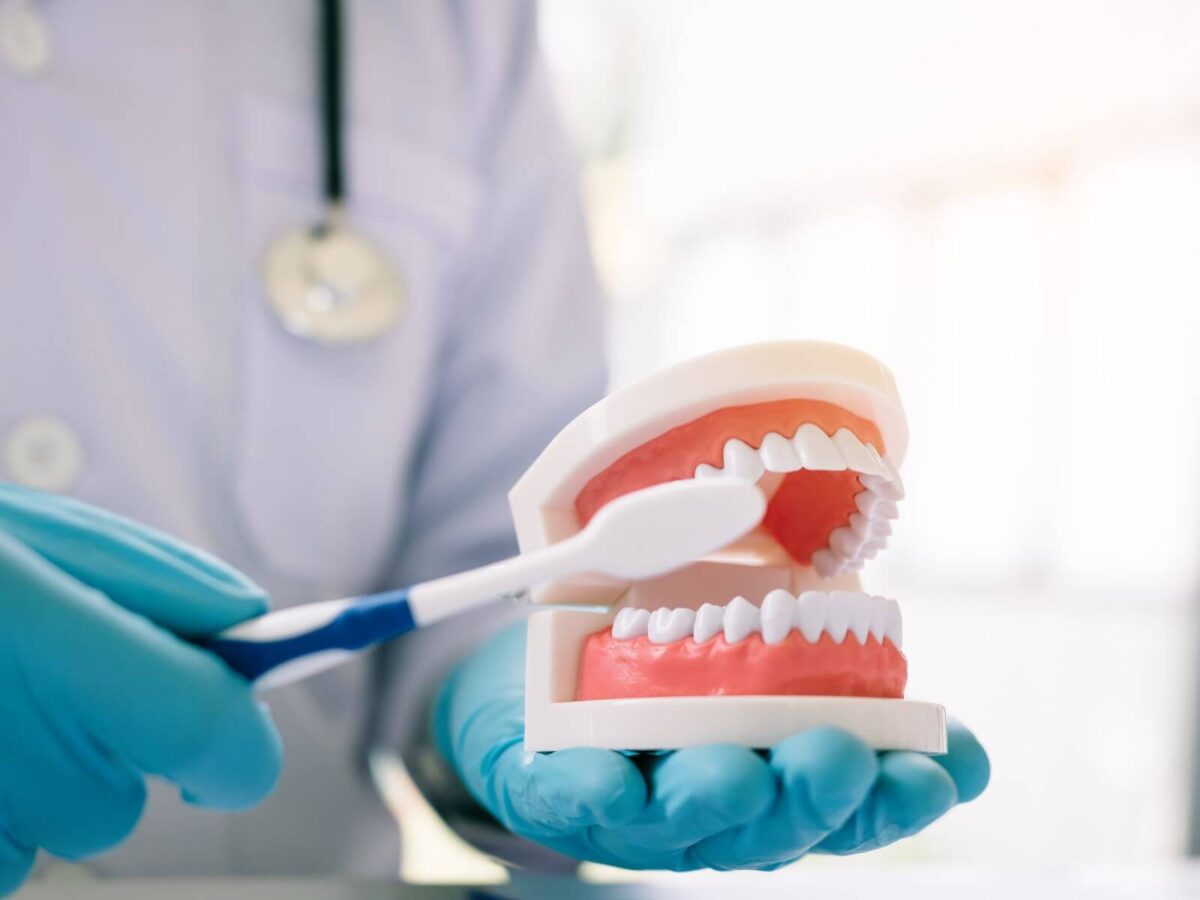Blog
Dental hygiene tips for healthy teeth & gums

Common Problems With Dentures And How To Solve Them
Like any other body part, teeth are not immune to decay and damage, even if they are strong. Everyone tends to misplace their teeth at some point due to various causes. Fortunately, dentures offer a solution to the problem of missing teeth. They are also one of the most inexpensive plans of action.
Although dentures have been used for several years and have been changed to look like real teeth and feel natural, the following are some worries one can have when using fresh dentures. Because of this, it is essential to behave in ways that will minimize such detrimental effects on the new set of teeth.
Common Denture Problems
Whether you wear partial or full dentures, you will likely face some problems, especially if you need to take adequate care of them. What are these problems, and what should one do about them?
1. Soreness
Soreness and irritation are expected, especially if this is the first time you wear dentures. It’s when a person starts adapting to the use of false teeth right from when they have them on. This discomfort may persist for a few hours or a few days.
The adjustment of dentures involves the pressure applied against the gum tissue, which usually causes some form of inflammation and sometimes discomfort. It is uncomfortable, but it should not take long before the feeling disappears.
Most of the time, it is easy to handle this soreness. The solution is to rinse your mouth with salt water, which usually works. It is also advisable to apply pressure or gently massage the gums to relieve discomfort. Some patients may also require pain relief medication. However, if the pain increases or strengthens, it is high time you visit your dentist at Lytle Dental to check for something wrong.
2. Difficulty Speaking
There is always the question of why one cannot speak fluently as one would when wearing dentures. This typical problem should be addressed by customizing the mouth and tongue muscles to the speaking stimuli. Unfortunately, there is no way around it, and it will take time for the person wearing the device to get the feeling in the mouth.
After some time, you will notice that you are starting to revert to how you speak in normal circumstances. Therefore, one should attempt to talk more often or sing some favorite songs – even if it feels slightly embarrassing. That discomfort will gradually reduce as your mouth and tongue muscles relax.
3. Difficulty Eating
These are the two main explanations for why many people struggle to take their meals normally once they have a new set of dentures. One is that their mouths are not accustomed to these new teeth. The other is the recovery process, commonly linked to the procedure. If you had an extraction and got immediate dentures after the surgery, you will experience many challenges when chewing food.
So, what should you do about it? Stay patient. Only talk a little initially, and let your mouth get used to the new set of teeth. Some foods may even cause more discomfort than others, meaning they should be avoided for the time being. You may find that even while eating, dentures can slip away from you, which is quite annoying and shameful. However, with time, the mouth and gums adapt to accommodate the dentures, and you can return to eating as usual.
It is advisable to avoid specific foods to minimize pain or feeling that your dentures are not fitting well during the initial weeks after obtaining your new teeth. It is also essential to avoid certain foods that may be sticky and hard because they can be tough to chew with new dentures. You must go for what is known as soft-diet foods so that your gums can heal well. In such a manner, one could sit or recline appropriately without worrying that they will develop pain or shift from the place.
4. Slipping Dentures
One of the horrible experiences of most denture wearers is dropping their dentures, especially in public places. This happens especially to the majority of people despite the quality of the dentures that have been created. The mouth and gums require some adjustment time to accommodate the new set of teeth properly.
Natural teeth are fixed on the gum; hence, they do not shift or slip after some time. Conversely, dentures are not anchored in the mouth muscles; thus, they may fall off when eating or speaking, especially within the first weeks.
It is common for patients to develop discomfort when they use new dentures. Hence, you have no reason to panic if yours slips out when you first get them. It will be easier to reposition them each time you find that they are out of place. But if it has been weeks and they come out quickly, it is time for denture creams and pastes. Sometimes, you can only allow your dentist to realign them for you.
5. Too Much Saliva
The body has a protective mechanism when it comes to anything that it has not encountered before. Saliva gland activity increases when the dentures are new to the oral cavity but reduces as the dentures become familiar. That is why you produce more saliva than any other person would ever think of doing. It does not cause any harm to your mouth, so do not be concerned, especially if there is too much saliva. It should decrease once the mouth has used the dentures properly in the household. Correcting this problem is impossible, but you must be ready to swallow more often.
6. Improper Fit
Dentures may still need better fitting despite being accurately measured and made according to specific requirements. We are not just talking about discomfort and pain here; it also has something to do with your health. Due to the discomfort, you may stop eating nutritious or solid foods, so you take soups and other softer dishes. Swallowing is also another complaint that might cause poor dietary and nutritional status.
Another issue resulting from a bad fit of dentures is that talking becomes unbearable. You may soon stop some activities because the dentures are rubbing your gums, which causes pain. However, if this rubbing and pressure are maintained, it leads to epulis fissuratum
which is hyperplasia in the mouth, particularly on the alveolar mucosa or gingiva.
If your dentures were comfortable to wear in the past but are now causing discomfort, then it can be assumed that there were changes in your mouth and jaw. Due to the degree of damage the mouth structure undergoes, these changes are more likely to occur in elderly persons who have lost most of their teeth.
Final Thoughts
Although dentures are a good solution for patients who have lost their teeth, any issues with dentures should be resolved as soon as possible to guarantee comfort and correct operation of teeth replacements. It is recommended to visit a dentist at least twice yearly to determine the state of your dentures and whether they should be remade or changed. It is easy to avoid these common problems with dentures by being proactive and following the solutions provided by Lytle Dentist TX to enjoy and live a healthy life with dentures.


